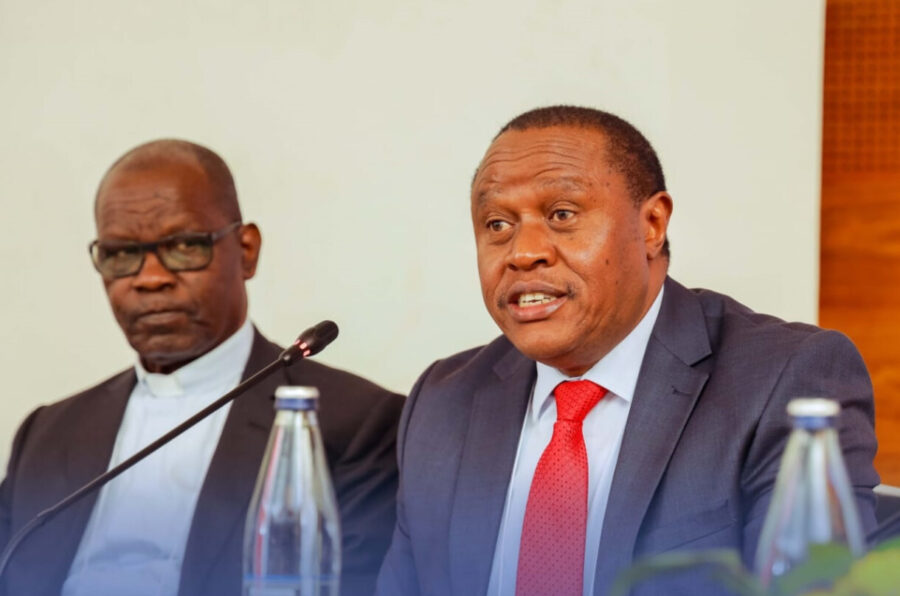Africa’s Faith Communities: A Driving Force for Sustainable Development
May 14, 2025Religions for Peace Secretary General Dr. Francis Kuria addressed the G20 Interfaith Forum, in Addis Ababa, calling for strengthened partnerships between faith-based organizations, governments, and multilateral institutions to engage faith actors in realizing the SDGs and Agenda 2063.
“We gather here not merely as representatives of the institutions and communities we serve, but as stewards of a shared vision: a world anchored in peace, dignity, sustainable development, and shared human flourishing, rooted in the sacred”. Religions for Peace Secretary General Dr. Francis Kuria opened his address at the G20 Interfaith Forum in Addis Ababa, Ethiopia, on May 13th, with the words.

This powerful convening is highlighting the pivotal role of Africa’s diverse faith communities in advancing the Sustainable Development Goals (SDGs), the African Union Agenda 2063, and shaping Africa’s engagement within the G20.
Dr. Kuria underscored the strength of the African Council of Religious Leaders-Religions for Peace (ACRL-RfP), a vibrant network encompassing nine pan-African faith traditions and 34 national interreligious councils. He emphasized that these communities, rooted in shared values like Ubuntu and the Golden Rule, serve as a profound moral compass, essential for peaceful coexistence and human dignity.
The Secretary General stressed that faith actors are not merely contributors but essential partners in achieving the SDGs. Concepts of justice, peace, and solidarity are deeply embedded within religious teachings, and historically, faith communities have been at the forefront of alleviating suffering and fostering just societies. Their extensive networks and resources enable them to reach underserved populations and build vital collaborations.
The African Union’s recent inclusion as a permanent G20 member marks a significant opportunity for the continent. Dr. Kuria commended the interfaith conference for aligning with South Africa’s 2025 G20 Presidency to amplify Africa’s priorities. He called for strengthened partnerships between faith-based organizations, governments, and multilateral institutions to strategically engage faith actors in realizing the SDGs and Agenda 2063.
Dr. Kuria, therefore, offered three key reflections for the G20 Summit:
- Faith leaders are essential co-owners of sustainable development. Their moral authority and community trust enable them to bridge divides and deliver crucial services.
- Sustainable development must be rooted in a shared vision of human flourishing. The 2030 and 2063 Agendas align with core religious values of dignity, equity, and solidarity. The Multireligious Humanitarian Fund, supporting 37 initiatives and reaching over 14 million people, exemplifies the vital role of interfaith action in humanitarian response and long-term resilience.
- Multi-religious, multi-stakeholder, and intergenerational collaboration drives lasting transformation. Initiatives like the Manresa 2022 Interfaith Forum and the Tokyo Peace Roundtables demonstrate the power of inclusive partnerships in addressing global challenges.
Dr. Kuria concluded by emphasizing that siloed approaches hinder progress. He called for actively including faith actors as co-creators in shaping a common future. ACRL-RfP remains dedicated to partnering with the African Union and leveraging the G20 process to advance Africa’s development and peace agenda. The conference aims to yield concrete recommendations to accelerate the SDGs, fulfill Agenda 2063, and amplify Africa’s voice on the global stage.